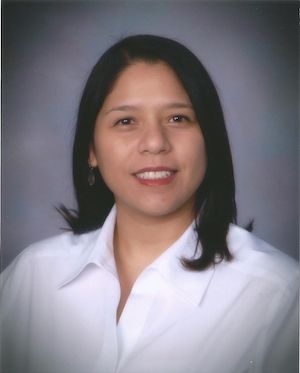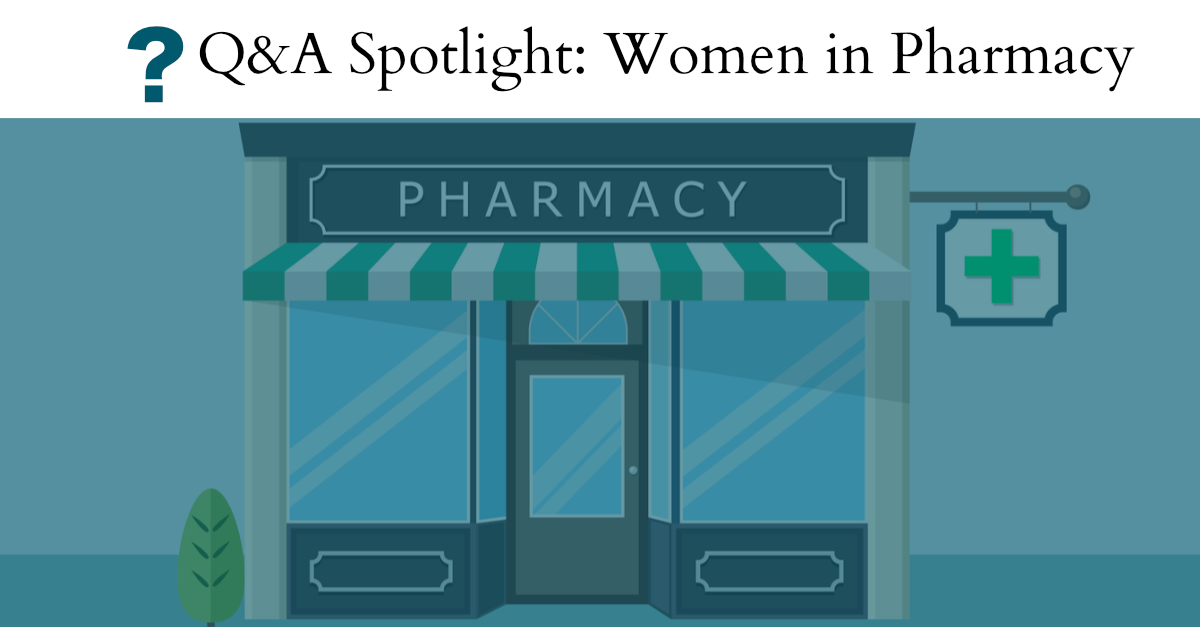Last Updated on August 23, 2022 by Laura Turner
Dr. Maria Vasquez completed her undergraduate studies in biochemistry and earned her Doctor of Pharmacy from the University of Illinois at Chicago. After pharmacy school, Dr. Vasquez worked for Walgreens, where she obtained additional training in pharmacy management, Medication Therapy Management (MTM), point-of-care testing, and immunization. After eight years in community pharmacy, she made the transition into managed care, taking a position as a clinical pharmacist at the OptumRX clinical call center, where she provided patient care as part of Optum’s Diabetes Management and MTM teams. Since 2018 she has served as pharmacist-in-charge at Curexa Pharmacy, where she partners with a local social service provider on a 340B program for patients needing affordable medications for HIV and PrEP. In addition to her full time role, Dr. Vasquez also provides relief staffing for other pharmacies in various settings, including community, ambulatory care, long-term care, and mail-order. Dr. Vasquez is licensed in Illinois and Oregon. She is a Certified Diabetes Educator (CDE) and a Board Certified Ambulatory Care Pharmacist (BCACP). She has over 14 years of experience in the profession of pharmacy, centering on patient wellness and providing excellent patient care.
What led you to the field of pharmacy?
My uncle worked as a pharmacy technician at one of the local hospitals. I had a talk with him when I was almost done with my bachelor’s degree, because I wasn’t sure if I wanted to pursue my initial goal of making the drugs. I also wasn’t sure about nursing or medical school either. He had suggested that I look into pharmacy, because I would still be a medical professional, but not have to worry about “blood and poop.”
What has your educational and career journey been like?
I initially went to school for Chemical Engineering, then changed to Biochemistry so I can make the drugs. When I decided to pursue pharmacy, I had already been working as a pharmacy technician at Walgreens. At the time, one of their big recruiting mottos was “As Far as You Want to Go.” I thought it was a good to stick with them because, as a pharmacist, one can work retail, corporate, as part of their PBM [pharmacy benefits management] (when they were WHI [Walgreens Health Initiatives]) or in mail order. When my school was promoting all the P4s to do a residency, I thought I didn’t need to since Walgreens had many paths for me to choose from if I get bored. What I didn’t take into account was change. WHI was sold off and there were major changes in corporate and mail order. It was several years later when I realized how beneficial a residency could have been. Eventually, I had gotten my Master’s Degree in Medical Informatics (so I had the degree trifecta – BS, MS, and PharmD), and I pursued a couple of certifications to give me an edge (hopefully!) in my career.
Tell us about your role with Curexa Pharmacy
I am the pharmacist in charge (PIC) for a specialty pharmacy. We mostly provide 340B medications for patients from a local social service agency for HIV and PReP.
What does a typical work day look life for you?

I come in about 15 to 30 minutes before opening, mostly to get myself situated and the computers up and running. Then I look through our list of patients with medications that are coming due on our Sync/Fill calendar (through Pioneer Rx). I also double check against my list of 340B recipients to make sure I didn’t miss anyone. After 10:00 AM my technicians and I call the patients that I just put in that day to see when they would like their items delivered. My technicians and I also add any items that we need to order into Cardinal. Once prescriptions are filled, we arrange deliveries (if desired by the patient) through our courier service (UDS). Any refills that are needed are called in or faxed to the prescriber’s office, of course. At the end of the month, I run a report of all the 340B HIV/PReP meds that we dispensed and send a copy to the social service agency as well as our home office in New Jersey.
Talk to us about community/specialty pharmacy. What do you like best about it and what makes it a challenge?
I do like the fact that I have interactions with the patients. Working with the social service as part of the 340B program leaves me feeling like I have made a bigger difference in the patients’ lives.
You began working in community pharmacy after pharmacy school, then transitioned to managed care, and then back to community pharmacy, albeit in a specialty setting. Can you tell us a little about those transitions?
I was working at Walgreens and had a family situation that precipitated my first transition. My aunt, who was living with us at the time, was very ill and rapidly declining. In my family’s culture, family comes first, so when my mother asked me to be available to help my aunt full-time, my husband I made it happen. I left Walgreens to focus on helping my aunt. We lost her within the year. A few months before she passed, I decided to pursue my Master’s Degree through Northwestern University’s online program. I felt that it would offer more flexibility with my situation than if I were to physically go to school. When my aunt passed, I started looking for work again and found per diem work with United Pharmacy Staffing. I also signed up with Aerotek, which is an agency that helped me get a 3-month contract position at Catamaran (now Optum Rx). I was doing MTM calls to mostly Medicare recipients, but some commercial patients as well. Three months turned to six months, and then the company offered me a permanent position there.
Do you have any advice for students or pharmacists looking to make a career in managed care?
To be honest, it seemed “easier” to get into PBM when the company was smaller (Catamaran). Nowadays, it seems like you have to know someone with the bigger companies (e.g., Caremark, OptumRx). It is possible to find a position within a PBM without a residency but it is rare.
What additional training or certifications are important for students or pharmacists desiring to work in community based settings or in managed care?
Residency, Board Certifications (e.g., MTM, BCPS, BCACP, etc.), maybe MBA.
Your pharmacy partners with a social service agency to serve patients living with HIV and AIDS. Can you tell us about that partnership?
We help the patients stay adherent on their medications through the pharmacy program. If a patient is not responding to us, we reach out to their case manager to make them aware. If we are trying to get a refill authorization from their prescriber and we haven’t heard back, we also let the case manager know – a lot of times they have a connection at the office and can get us a response. If the patient’s insurance changes or isn’t working suddenly for them, we can contact the case manager so we can figure out how we can get the medication to the patient without them lapsing.
Get inspired by reading interviews with other female pharmacists:
What are your recommendations to build leadership skills in pharmacy?
When I was at Walgreens and wanted to be a pharmacy manager, there was a freeze in my area after 2008. I asked my pharmacy managers if I could shadow them or help them in some of their duties so I would know what to do when I am a manager (hiring, ordering C2s, scheduling, etc.).
How important is networking in pharmacy?
It definitely helps to know people to get your foot in the door. I must admit that I don’t follow this piece of advice too well due to life and my work schedule. At least try to reach out every 3 or 6 months to touch base with people.
Is finding a mentor critical to success in pharmacy? How would you recommend students or new practitioners go about finding a mentor?
Having a mentor definitely helps, especially when starting out. When I started as a pharmacist, I would usually call a neighbor store (preferably the slower ones) with my question. If I have good rapport with the pharmacy manager there, they end up being one of my “lifelines.”
How do you recommend a pharmacy student or pharmacist learn more about the leadership and administrative aspects of pharmacy?
Some Doctor of Pharmacy programs offer electives to learn about managed care, pharmacy administration, etc. – I would recommend trying to sign up for those courses if they are offered.
What else has aided in your success?
I feel that if I had not been as flexible with all the changes that I have gone through in life and in my career, I probably wouldn’t have made it this far.
In your perspective, what is the biggest problem in pharmacy currently?
I feel that some corporations do not treat pharmacists and technicians like health professionals, especially with cutting hours and benefits.
What advice do you have for balancing work and personal life?
It’s definitely a challenge, but it’s a must. If it’s just work all the time, you will easily burn out. Try to do one thing for yourself a day, even if it’s just 5 minutes of meditation (in the car, outside the house, before you come in).
What do you enjoy most about your profession?
I like helping people understand their medications better and staying healthier.
What is your vision for the profession of pharmacy?
I hope that more people come to see the value in our profession; more companies will allow more help for the pharmacist (tech hours); fair pay for technicians because they help us out so much; having a lunch break or closing for lunch wouldn’t be a big deal.
What advice would you give students who are wanting to pursue a career in pharmacy?
If you REALLY feel in your heart of hearts that this is your calling, just know that jobs are hard to come by and try not to take out so much in loans (if at all). Otherwise, if there is doubt, I’d encourage you to explore all the available options in healthcare before deciding.
Is there anything else you’d like our readers to know about you or about pharmacy?
We are doing our best to help you get your medication to you and make sure it is safe. Sometimes that includes verifying the dose with the prescriber, calling insurance companies, and screening against medications that you already take. This is all taking place while we are answering phone calls from other pharmacies, talking to prescriber offices, answering questions from other patients in the store, and in some cases, handling the drive thru all at the same time. We are humans, not robots.
